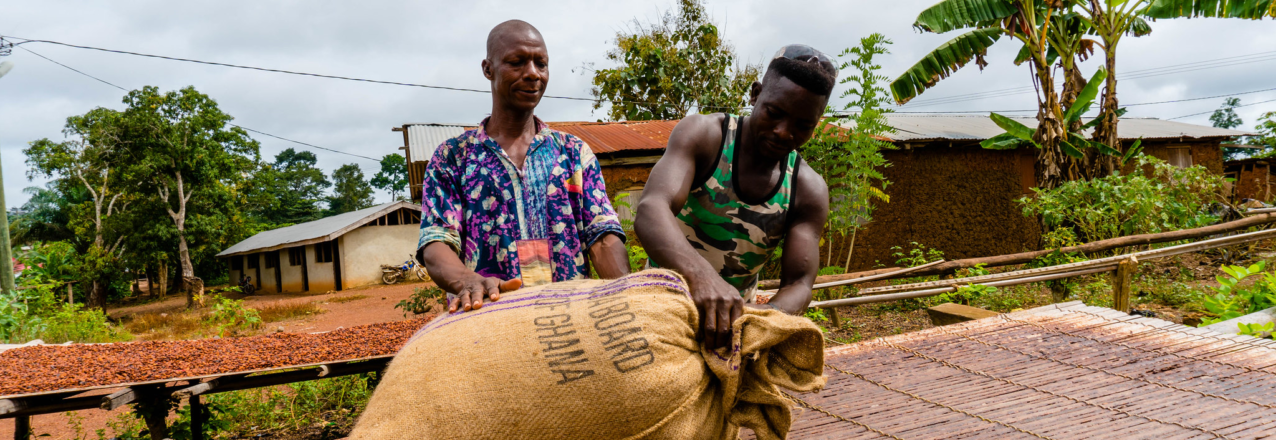This blog was originally published on ClimateLinks.
In Ghana, a changing climate is affecting the production of cocoa, one of the country’s major cash crops and its second leading foreign exchange earner. USAID and Winrock International worked together to produce ECO Game: Northern Ghana to provide communities with a better sense of land use planning and ecosystem services. The purpose of the game is to show players that more sustainable land uses lead to better long-term outcomes. A follow-up, called ECO Game: Ghana Deforestation-Free Cocoa, is currently under development and scheduled for release in late 2019.
Once an indulgence reserved for Mayan rituals or European high society, chocolate has become a treat that millions of people around the world delight in every day. The basis of this enormous industry is the small Theobroma cacao tree, which produces pods along its trunk whose seeds are processed into chocolate. These trees dominate Ghana’s once heavily forested Western Region. The country supplies 20% of the world’s cocoa. The commodity forms the backbone of its economy, and is the primary livelihood of over 800,000 Ghanaians.
Yet cocoa yields in Ghana are declining, with already aging farms suffering from exposure to higher temperatures and drier conditions associated with climate change, as well as pests and diseases. Sustaining the cocoa industry in Ghana, and all those who rely on it, requires a landscape-scale approach to rehabilitate farms, protect natural forests to mitigate climate change and bolster resilience, and empower communities to invest in long-term solutions.
Addressing Threats to Ghanaian Cocoa
USAID’s Supporting Deforestation-Free Cocoa in Ghana Activity is working to accomplish these objectives by combining the financial resources, political will, and public participation to reduce deforestation and promote reforestation by improving tenure security, rehabilitating old and diseased cocoa farms, and promoting participatory community land use planning.
While improving tenure security and the benefits of rehabilitating cocoa farms offer clear, direct benefits to participating communities, the role of natural forests in enhancing long-term mitigation of and resilience against climate change is a harder message to effectively convey. And given the tantalizing draw of gold mining, despite devastating environmental impacts, the imperative to bring to light the value of natural systems is even more critical.
USAID’s Agriculture and Natural Resource Management (AgNRM) project faced this dilemma in northern Ghana, where Winrock International worked to improve sustainable community land use planning. The project completed a technical study on economic benefits and ecosystem services associated with common land uses in the region, yet deep down, we knew that few would read it – not least farmers in rural communities for whom the information was intended.
Read the full story


